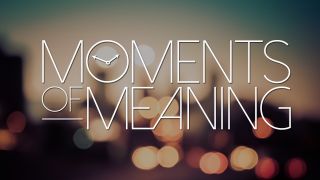
I've said it before: psychotherapy has an image problem, and despite the fact that…
- numerous studies prove therapy’s effectiveness,
- it is more cost effective than many alternatives,
- it has no chemical side effects,
- it has a longer-lasting impact than medication, and
- mental health awareness is on the rise,
… fewer people go to therapy. Why is this?
Well, there are many factors, from the billions in advertising spent by pharmaceutical companies to the crackpot therapy caricatures often depicted on TV (as well as expense, time, bad therapists, etc). But there’s an even more basic problem – therapy is mysterious. It’s an intentionally mysterious profession. We need to maintain confidentiality, so the curtains are closed and everything remains a mystery. But because of that important curtain, millions of incredible moments have gone unseen. If more people knew about these moments, maybe they’d be willing to give it a try. So a group of local therapists gathered together to create a storytelling event called Moments of Meaning to let people peek behind the curtain, to reveal the mystery of therapy.
Reveal to a point, that is. Confidentiality is a cornerstone of psychotherapy. Without confidentiality, clients won’t feel safe going to therapy to divulge the most painful areas of their lives. All the stories included in the evening were told with the full consent of the client, or the client’s identity is so distorted they are unrecognizable. We wouldn’t do it any other way. We’re looking behind the curtain to see powerful moments, not divulge confidential information.
So in order to reveal the mystery, we’re telling stories. I like stories. You like stories. And therapy is all about stories. We’re telling stories about powerful moments that happen every day in therapy offices. Demystifying therapy one story at a time.
For example, I’d like to tell you about a Wednesday I had last summer (again, disguised and distorted):
My first client burst through the door, plopped on my couch with a purpose, and she said: “You are partially responsible for this!” She was holding in her arms exhibit A, which happened to be a smiling, drooling, 8-pound baby girl. Ah, I’m responsible for that? Then my mind spun through our seven years of work together, through her serial monogamy, her ambivalence about commitment, her desire for and terror of getting married, her wish to have a child, her difficulty conceiving, the joyful news of her pregnancy, and her anxiously anticipated childbirth. In a way, she was right. I was partially responsible.
Later that day, I sat with a man who suddenly understood that 30 years of his shady business practices had caused many people a great deal of pain. We then spent 15 minutes in total silence. Not awkward silence, not pregnant silence, just silence. He had to soak this in, and words wouldn’t help. Then he looked up and said “I didn’t want to see my responsibility, but I needed to.” The words echoed in my mind: You are partially responsible for this.
The early evening was more eventful, as I showed up late to a woman’s appointment and then proceeded to forget the name of her daughter. Then the client started yelling at me, and I was elated. It was full-on, red-eyed, veiny-necked anger, her face distorting in shapes I’d never seen from her. She was calling me names that would make a trucker blush. And I was delighted. Am I a masochist? No, that night she finally allowed herself to express anger – for the first time in her adult life. That onslaught was an incredible breakthrough, a sacred moment. My lack of punctuality and flawed memory were partially responsible for this.
As I was about to leave the office, the phone rang. The caller ID told me who it was, I’ll call him Hank, my Wednesday night check-in. Hank was a client I first saw 16 years ago, helping him adjust to life as a divorced, socially anxious man. We worked together for four years until he moved away, but we agreed to check in periodically for a few minutes by phone, which we did for 12 years. A mysterious health scare six months ago led to us talking every Wednesday, as I supported his navigation through the medical maze.
“The tests came back, and I’m loaded with cancer,” he said, “I probably have a couple of months to live.”
“Oh, Hank, I’m so sorry.”
“It’s okay,” he said, “I didn’t expect to live forever, and now I know what I can do with the time I have left.”
After we spoke for a while, I had to address something. “Hank, after your divorce you said you just wanted to make sure you didn’t die alone. And here you are.”
Hank said, “To me, alone means that no one knows me. After 16 years, I feel known by you. As long as you’re around, I’m not alone.”
Hank died three weeks later. I went to the funeral and helped spread the ashes. He didn’t die alone, and for that, I’m partially responsible. And tremendously grateful.
These were meaningful moments. Moments that transcend the textbooks and won’t show up on any outcome study. They are the very human interactions that are so valuable and mysterious about therapy. The therapists you know will attest to the fact that these moments, whether insight, truth, or profound connection, makes us want to come back to work each day.
We’re proud to present talks from six highly professional and compassionate therapists who worked for months to share one meaningful moment with you. We hope you’ll enjoy them and spread them around for the world to appreciate. You, too, are partially responsible! If only one person decides to begin a path to healing through therapy as a result, we’ve done our job.
Come visit the Moments of Meaning website, Facebook page, and watch our videos on our youtube channel.




